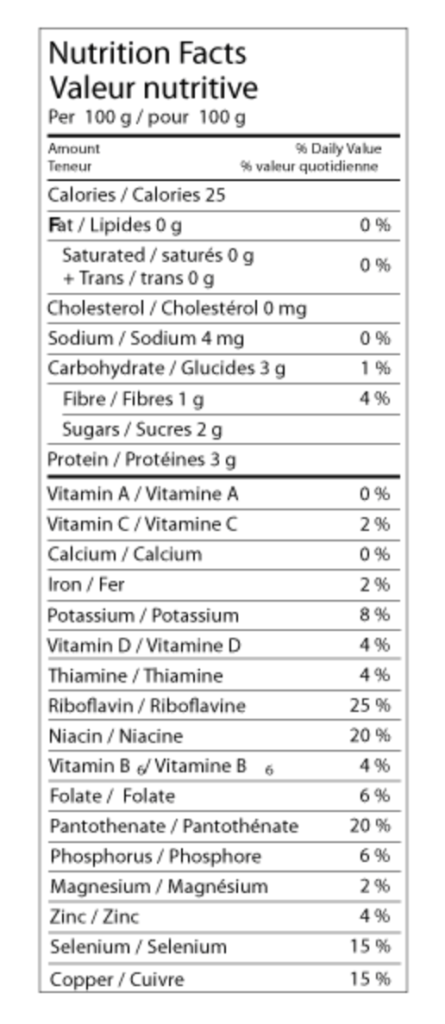A team of Western mycologists (fungi experts) spent the past two summers digging deep in Newfoundland dirt to investigate the might of mushrooms and found what lies beneath truly is 'the main character' in most terrestrial ecosystems.
Fungi, which produce mushrooms, are critically important in most earthbound ecosystems as they provide life-sustaining mineral nutrients to plants while decomposing their remains, and recycling both organic and inorganic byproducts throughout the biome as they grow and reproduce.
"A lot of ecologists are beginning to realize that mushrooms really run the world. We've quite naturally spent a lot of our time focusing on things above ground, things that we see like plants, animals, and birds," said Western biology professor Greg Thorn. "But in fact, the plants are very closely associated with fungi, and basically wouldn't be there (above ground) without them."
Please read the full article here.
Source: Phys.org provided by University of Western Ontario
Mushrooms are good for you!
Mushrooms are good for you! Adding four to five medium sized mushrooms (100 g) to your diet provides important vitamins and minerals, essential for a healthy body and active lifestyle.
Mushrooms are a source of:
B Complex Vitamins – Mushrooms are a good source of B vitamins such as niacin, riboflavin, and panotothenic acid. These B vitamins help to provide energy by breaking down proteins, fats, and carbohydrates. B vitamins also play an important role in the nervous system.
Minerals – Mushrooms are a source of important minerals such as selenium, copper, and potassium. Minerals are necessary for the proper function of the human body and play different roles from making healthy red blood cells to protecting body cells.
Fibre – Mushrooms contain both soluble fibre and insoluble fibre, which helps to maintain good bowel health.
Vitamin D – Vitamin D works with Calcium and Phosphorus to make strong bones. Mushrooms are the only source of vitamin D in the produce aisle and one of the few non-fortified food sources.
Mushrooms are low in:
Fat
Carbohydrates
Sodium
Cholesterol
Sugar
Some easy ways to add more mushrooms and nutrients into your diet:
Add ½ cup white button mushrooms to your omelet or scrambled eggs. Benefit: one 1 extra gram of fibre.
Mix 1 cup of diced portabella mushrooms into pasta or pasta sauce. Benefit: three 3 extra grams of fibre.
Include 1 ½ cups sliced crimini (brown) mushrooms in risotto or other rice dishes. Benefit: five 5 extra grams of fibre.

Source: Mushrooms Canada
So Your Concern Is… Immunity
The immune system is the body’s first line of defense against disease and infection. A healthy immune system is important at every age. A strong immune system helps protect against infections from bacteria and viruses. It also helps protect against other health problems such as arthritis and certain types of cancer.1
There are many ways you can keep your immunity boosted. Getting enough sleep, keeping stress levels in check, exercising every day and being at a healthy weight will go a long way to maximize your wellness. Good nutrition is also essential for maintaining the immune system in top shape. Including a wide variety of nutrient-rich foods in your diet gives your body the nutrition it needs to help protect against illness and lower the risk of developing chronic diseases such as diabetes and heart disease. That’s where mushrooms come in.
Fresh Mushrooms Can Help! Boosting Immunity
A 2006 study found that the beta-glucan, a polysaccharide that is part of the soluble fibre found in mushrooms, had potential anti-inflammatory activity, which may help protect the body against disease.2
Mushrooms extracts may also stimulate different cells of the immune system.(3,4)
Vitamins and Minerals
A 2000 study published in the American Journal of Clinical Nutrition found that elderly subjects who were deficient in vitamins and minerals, including selenium, zinc, vitamin B6 and folate, also had fewer and less effective natural killer cells.5
A ½ cup serving of uncooked, white button mushrooms is an excellent source of selenium, and a good source of niacin, copper, pantothenic acid and selenium. You’ll also get some vitamin B6, vitamin C, folate and zinc.6
Adding the Antioxidants
Ergothioneine is a naturally occurring antioxidant found in mushrooms that may also help protect the body’s cells.7 Ergothioneine is found in both raw and cooked mushrooms.
Mushrooms Make a Difference8
Mix in ½ cup chopped shiitake mushrooms into clear broth or consommé. Benefit: add 18 micrograms of selenium (26% of the Daily Value)
Add ½ cup sliced fresh crimini mushrooms into egg dishes. Benefit: add 9 micrograms of selenium (13% of the Daily Value)
Top pasta with ½ cup grilled Portabella mushrooms. Benefit: add 11 micrograms of selenium (15% of the Daily Value).
Source: Mushrooms.ca
For the complete article, click here























